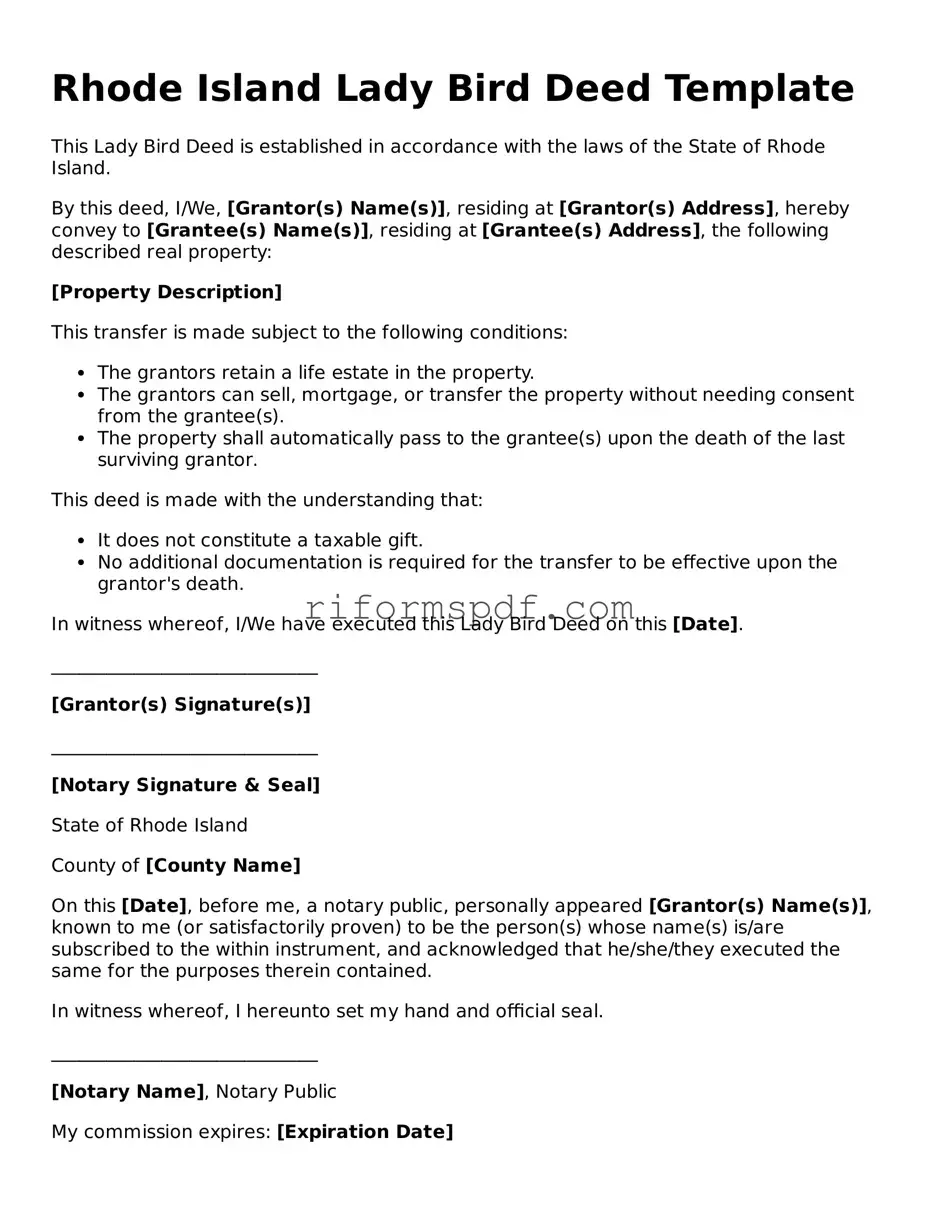Printable Lady Bird Deed Form for Rhode Island
The Rhode Island Lady Bird Deed form is a legal document that allows property owners to transfer their real estate to beneficiaries while retaining control during their lifetime. This unique form of deed ensures that the property bypasses probate upon the owner's death, providing a streamlined transition for heirs. Understanding this tool is crucial for effective estate planning in Rhode Island.
Launch Editor

Printable Lady Bird Deed Form for Rhode Island
Launch Editor
Finish the form now and be done
Edit Lady Bird Deed online and skip the paperwork.
Launch Editor
or
⇓ PDF Form
